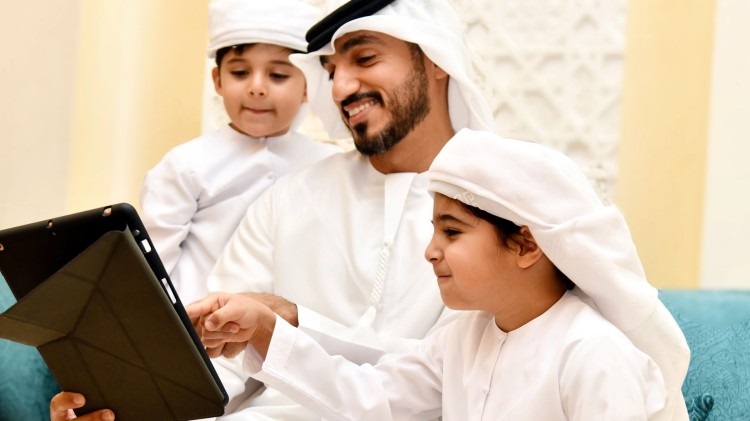The Child Safety Department (CSD) has announced the findings of its research study, which was conducted to identify parents’ awareness of cyber safety and the safe use of the internet by children.
The study, based on a survey of 12,344 households in Sharjah has revealed that 72.3 percent of families allow their children to use smart devices. It has also revealed that 37.6 percent of parents do not review their children’s activities on the internet, while 73.4 percent believe the websites accessed by their children are appropriate for their age group.
Titled ‘Community Awareness on Safe Use of the Internet and Social Media Sites’, the study
was conducted by CSD under the directives and support of Her Highness Sheikha Jawaher bint Mohammed Al Qasimi, wife of His Highness the Ruler of Sharjah, and Chairperson of SCFA.
A representative sample was selected randomly amongst Emirati families and expatriate residents based on administrative suburban divisions across Sharjah city. Conducted over a 14-month period from 2018–19, the survey achieved a 92 percent response rate, which is both high and statistically relevant for accurate scientific analysis.
Among those surveyed, 7,635 households reported having children, of which 72.3 percent reported permitting their children to use smart devices, 66 percent allowed internet access, while 23.5 percent offered internet access to children “only sometimes”. In contrast, 10.4 percent stated that they do not permit internet access for their children.
The study also found that 53.9 percent of respondents restricted their children’s access to certain websites, while 62.39 percent of those surveyed said they review their children’s activity on the internet, leaving 37.6 percent of parents who do not review their children’s online activity.
The CSD survey also revealed that 73.4 percent of families surveyed believe that the websites accessed by their children are appropriate for their age group. Results also revealed behaviour changes observed in children resulting from their access to the internet – the most significant being “intellectual development” while “academic achievement” was ranked as the least significant.
The study revealed that 55.5 percent of respondents used parental control programmes to monitor the websites their children accessed and the social media applications they download. While 13.7 percent indicated they do not use any such monitoring programmes, 7 percent of the respondents were not aware about the existence of such programmes. Although there is a higher percentage of families using internet monitoring programmes, 23.6 percent of respondents did not answer the question, which must be taken into account when awareness-raising programmes are carried out for parents on how to use these applications.
Recommendations
The study recommends forging research partnerships across the network of institutions working in the field of child safety across the UAE to provide relevant data and information to safeguard children from threats in the virtual world. It also recommended the need to limit children’s access to games on the internet using parental controls or by blocking access through telecommunications service providers.
It further proposes carrying out a study amongst school pupils between 7-18 years of age to hear their views on the reasons why hacking happens and to formulate recommendations to protect them while using the internet.
The study suggests partnering with nurseries and schools to develop programmes that raise awareness about e-safety and potential dangers online, increase general awareness about cyber safety, and use technology to enhance creativity and innovation.
The study was carried out under the general supervision of the Child Safety Department and prepared and edited by a team of specialist researchers and editors who conducted the analysis of the results. The data was collected by a field team from the Sharjah Department of Statistics and Community Development.











